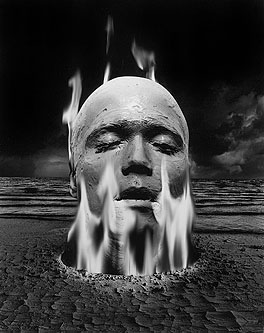
ShowCases: 3 Sisters, Mikado, 12th Night, Hamlet, The Importance of Being Earnest, Dangerous Liaisons, Don Juan
Summary
Oedipus, hearing that there is a group of suppliants outside the palace, comes out and asks the the priest, their leader, what the trouble is. The priest replies that the city of Thebes is in the grip of a plague; because Oedipus saved the city from the Sphinx before, and is especially favored by the gods, they are asking him for help (1-57). Oedipus answers that he knows about the plague; he has sent Creon, his brother-in-law (and uncle, though he does not know this) to Delphi to ask the oracle what to do. Creon is seen returning at that moment (58-86). Oedipus questions Creon about the oracle. Creon explains that the gods are angry at Thebes because a murderer is making the city ritually unclean, causing a pollution. The oracle also said that the murderer is the one who killed Laius, Oedipus' predecessor as king of Thebes. Oedipus vows to find the murderer and expel the pollution (87-150). The chorus (old men of Thebes) sings an ode invoking the aid of Apollo, Athena, and Artemis; the ravages of the plague are described, and Ares, god of war, is blamed (151-215). Oedipus calls upon the citizens of Thebes to provide information about the murderer; he curses the killer and those who shelter him (216-275). The chorus and Oedipus agree that they should consult Teiresias, the blind seer (276-299). Oedipus questions Teiresias, who clearly knows something, but is reluctant to speak. Oedipus angrily insists (300-349). Teiresias names Oedipus as the pollution, and hints at ongoing crimes; Oedipus does not believe him, and theorizes that Creon has put Teiresias up to this accusation as a way to get rid of Oedipus and rule Thebes himself (349-403). Teiresias defends himself, suggesting that Oedipus is figuratively blind now, and will be literally blind later. The seer hints darkly about what the future holds for Oedipus. Finally he plainly states that Oedipus has murdered his father and married his mother (403-461). The chorus sings an ode musing on the identity of the murderer; without any evidence against Oedipus, the chorus pledges not to condemn him, since although the gods are infallible, prophets make mistakes (462-512).Creon returns to defend himself from the charge of treason. Oedipus repeats the charge, adding that he thinks Creon is the killer of Laius. In a tense stichomythy, Oedipus tries to learn more about the crime, and wonders why Teiresias did not name him at once, if he knew (543-582). In his own defense, Creon claims he would rather enjoy power by proxy than be king himself and live in fear of plots (583-615). Jocasta arrives, interrupting Oedipus' threats against Creon (616-634). Jocasta and the chorus convince Oedipus to spare Creon. Creon leaves, and Oedipus explains the situation to Jocasta (635-706). As evidence of the unreliability of oracles, Jocasta tells how Laius was told that that his son would kill him, and how he exposed the baby boy on a hillside; the oracle must have been false, because Laius was killed at a crossroads by robbers (707-725). Reminded by the reference to the crossroads, Oedipus questions Jocasta about Laius, remembering an old man he killed at a crossroads, and beginning to realize what really happened (725-770). Oedipus reveals that while a young man at Corinth he heard rumours that he was not the son of Polybus and Merope; Apollo's oracle told him he would kill his father and have children by his mother; on the way to Thebes, he quarreled with and killed a man who (he now realizes) was Laius. But Oedipus still does not know the whole truth; he and Jocasta will wait to speak with Laius' servant, who witnessed the murder (770-861). The chorus sings an ode, affirming its faith in Zeus and divine justice, but expressing doubt about Apollo and his oracles (862-910).
A messenger from Corinth arrives and announces that Polybus is dead of natural causes; Oedipus and Jocasta gleefully accept this as evidence that the oracle which said Oedipus would kill his father was false (910-975). Oedipus points out that Merope is still alive, and fears that that part could still come true, but Jocasta is confident that he can avoid this. Overhearing the exchange, the messenger reveals that Oedipus is not the son of Polybus; he himself gave Oedipus, who had been exposed as a baby on Mt. Cithaeron, to Polybus. He got Oedipus from a servant of Laius, a shepherd, who turns out to be the same man who was eyewitness to Laius' murder; Oedipus is more anxious than ever to question this man. Jocasta realizes the whole truth, but does not reveal her knowledge. When she fails to get Oedipus to call off the investigation, she exits into the palace (976-1073). Oedipus confidently asserts that he is not afraid to learn the truth about his lineage. The chorus sings a short hymn to Mt. Cithaeron and Apollo, and speculates that Oedipus may be the son of some mountain nymph (1074-1109). The shepherd arrives, and reluctantly (since he knows the truth) admits that he was assigned to expose the baby son of Laius and Jocasta, but instead gave him to the Corinthian; the light dawns on Oedipus at last (1110-1185). The chorus sings an ode about the transitory nature of human happiness, using Oedipus as an example (1186-1223). A messenger comes out of the palace. He describes the despair of Jocasta, and how Oedipus, after discovering that Jocasta had hanged herself, gouged out his own eyes. The messenger says that Oedipus intends to exile himself from Thebes, but wants first to face the citizens (1224-1297). Oedipus reappears with his eyes mutilated, and he and the chorus sing in lamentation; Oedipus blames Apollo; the chorus suggests that he would be better off dead (1298-1368). Oedipus counters that blindness is appropriate, since he cannot see the results of his actions, which he recounts in agony. He asks the chorus to kill him; it points out that Creon is coming. Since Creon is the new king of Thebes, Oedipus' future is up to him (1370-1421). Creon arrives. He refuses to exile Oedipus, but instructs him to ask the gods what to do. Oedipus asks Creon to bury Jocasta, and to let him touch his two daughters, Antigone and Ismene. The two girls come out, and Oedipus laments over their poor prospects for the future, commending them to Creon's care. As the play ends, the chorus pronounces the Solonian axiom that no one should be judged fortunate until after his life has ended (1422-1530).
Questions
In class -- africa.mid *Notes
techno.mid * phantom.mid *The Chorus showed its origin, partly, also, by dressing like the chief actor... The standard number of members of a chorus was twelve throughout most of Aeschylus's career, but was raised to fifteen by Sophocles. The chorus, like the actors, wore costumes and masks.
The first function of a tragic chorus was to chant an entrance song called a parodos as they marched into the orchestra. The entrance song took its name from the two ramps (parodoi) on either side of the orchestra which the chorus used as it made its way into the orchestra. Once the chorus had taken its position in the orchestra, its duties were twofold. It engaged in dialogue with characters through its leader, the Coryphaeus, who alone spoke the lines of dialogue assigned to the chorus. The tragic chorus's most important function was to sing and dance choral songs called stasima (singular = stasimon).
choryphaeus: chorus leader who delivers lines of spoken verse on behalf of the chorus as a whole. *
The orchestra was the main part of the stage where the chorus was located at. The word orchestra was derived from the word orcheisthai. Literally translated, it means the dancing place. It was the place where the chorus danced and sang. During the harvesting season it was used for threshing. Threshing was the beating of wheat to remove the grain. The orchestra was in front of the skene and was at the center of the theatre. It had the thymeli in it, which began as an altar, but later became the place for the chorus leader, the korypharios, to stand.
The tragic chorus had at first twelve, and then fifteen members and was arranged in rectangular form like battle lines of hoplites (heavily-armed infantrymen)
The best dancers were in the row that had the audience on their left. The chorus leader (koryphaios) was in the middle of this row. The next best dancers were in rear row, while the worst were hidden in the center.
The first 135 years of tragedy show a continual decline in the role of the chorus, both in the number of lines they sing and in their importance to the drama. The tragedies of Aeschylus are 40 to 50% choral - which is what you would expect from an early tragedian. Tragedy started out as purely a choral performance, until an actor was separated out from the chorus to engage in dialogue with the chorus, thereby making drama possible. Before 425 BC (with the exception of the Prometheus Bound) no tragedy is less than 20% choral. Some of the late plays of Euripides, however, are as low as 10% choral. Another indication of the less than integral role of the chorus late in the century is Aristotle’s comment that Agathon, whose plays have not survived, began writing generic choral songs that could be fitted into any tragedy. The choral songs were fast becoming no more than interludes, without any particular relevance to the action of the play. Perhaps the single most important factor in the decline of the chorus was the conflict between the increasing desire for realism in drama and traditional convention that required the chorus not to interfere in the action of the play. It became increasingly hard for the audience to accept the presence of the chorus, which witnessed gruesome murders, but could not intervene.
Although the actors were strictly professional, the members of chorus were amateurs recruited from the citizen body. The only exception was the, the chorus leader (koryphaios), who was a professional, and spoke lines of dialogue, when the chorus conversed with actors. Since participation in a chorus with its singing and dancing was very physically taxing, choruses were made up of young men. In the Great Dionysia only citizens could serve in the chorus. A choregos (‘producer’) who allowed foreigners or disenfranchised Athenians to be chorus members were fined 1000 drachmas and a citizen could forcibly remove a non-citizen chorus member right in the middle of the performance. The amateurishness of the chorus, contrasted with professionalism of the rest of the production, probably also contributed to the decline of the chorus’s role in drama.
Choral songs were usually organized into stanzas called strophe (‘turn’), antistrophe (‘turning the other way’), and epode (‘added song’). As is clear from their meaning, strophe and antistrophe are dance terms. These two stanzas corresponded to each other metrically. An ancient commentator on Euripides’ Hecuba (647) says:
One must realize that the chorus members sang the strophe while moving to the right, the antistrophe while moving to the left, and the epode while stationary.
The dancing that accompanied these songs in the earlier part of the 5th century was solemn and noble with almost slow-motion movement. Here is a description of this older kind of dancing attributed to either Plato or Aristophanes (Athenaeus, 628c-f):
Classical Drama is Meant to be Performed *
Dr. J's Illustrated Greek Theater
The Book of the Ancient Greeks Chapter XIV: The Greek Theatre
"... The Chorus also served another purpose. In the modern drama, when the tragedy of a situation becomes almost too great for the audience to bear, relief is often found in some comic, or partly comic, episode which is introduced to slacken the tension."
[ Sophocles was also revered by his contemporaries: he recieved the first prize for tragic drama over Aeschylus at the drama festival (the City Dionysia) held in 468 BCE, when he was twenty-eight years old. ]
... [Seneca] The Chorus has become a means of internal dialogue for Oedipus, like a mysterious voice that confronts him with the horrible reality of his own deeds:
night is finished
Stravinsky:
...
but day is reluctant
the sun drags itself up out of that filthy cloud
it stares down at our sick earth
it brings a gloom not light




 I have to have titles for all scenes! Each scene is a story...
I have to have titles for all scenes! Each scene is a story...






